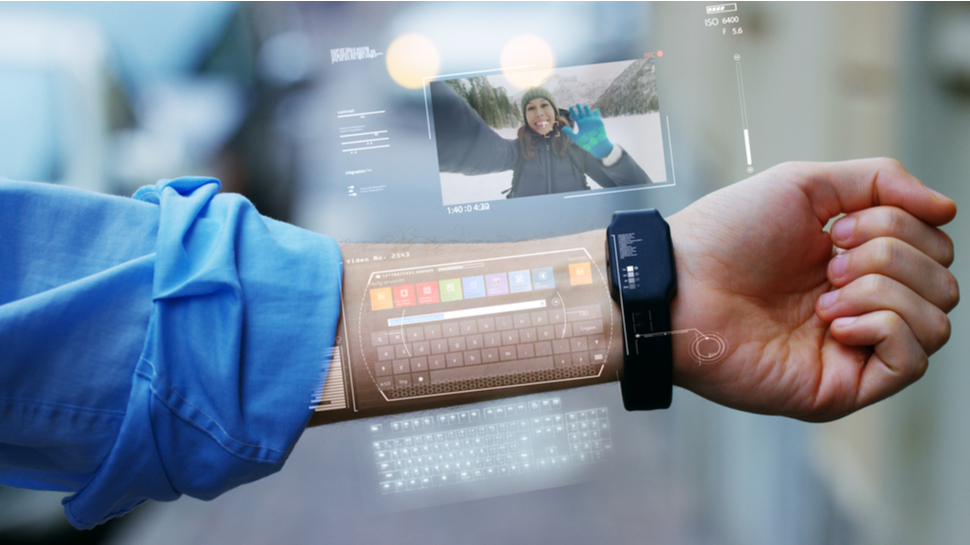Human augmentation is a dangerous temptation we are unlikely to resist
Biohacking could open up a world of possibilities, but there will be plenty of strings attached

Sign up for breaking news, reviews, opinion, top tech deals, and more.
You are now subscribed
Your newsletter sign-up was successful
The ability to repair the body using technology has long been celebrated, but the issue becomes more complex when it comes to enhancing humans beyond their natural state.
Many people are conflicted about the idea of voluntary biohacking, caught between the opinion that people should be able to do with their bodies what they wish and concerns about the implications of modifying the human physique.
A new study from security firm Kaspersky indicates that almost half (46.5%) of adults believe people should be allowed to enhance themselves with augmentation technologies, but a similar proportion (39%) harbor concerns that augmentation could result in conflict or social inequality.
- Here's our list of the best antivirus services out there
- We've built a list of the best malware removal software around
- Check out our rundown of the best ransomware protection services
As science fiction has predicted, the most advanced upgrades are likely to be reserved for a small handful of people able to pay for them. Augmentation will also create a new social minority, adding to the already intricate human tapestry.
Another major consideration is data privacy and security. A world in which our bodies are filled with digital sensors could quite easily become a playground for cybercriminals. The stakes are also raised in the debate around surveillance capitalism, when the data in question is gathered from devices within a person’s body.
According to Kaspersky, whether human augmentation brings about a utopia characterized by opportunity or a dystopia founded upon broken promises will depend on preparation and execution.
The dual-use problem
Kaspersky recently brought together a panel of augmented people to debate the merits and pitfalls of biohacking. Some were equipped with bionic prosthetics for medical reasons, while others had actively chosen to modify themselves.
Sign up to the TechRadar Pro newsletter to get all the top news, opinion, features and guidance your business needs to succeed!
Asked about the impact of augmentation technologies on their lives, model Tilly Lockey and pop artist Viktoria Modesta, both of whom use bionic prosthetics as replacement limbs, explained that on-body augmentations have changed the way society perceives disability.
With advances in technology, augmentations have become less about making other people more comfortable and more about utility for the wearer. Using electrical signals generated by muscle tissue, modern bionic limbs can move their digits and rotate at their joints, as the real human equivalents do.
Dr. Bertolt Meyer, a professor at Chemnitz University of Technology, said his prosthesis is even capable of converting signals that would usually control the hand into signals that a synthesiser can understand, allowing him to effectively “create music with thoughts”.
“When I was fitted with a more advanced hand, there was no more pity. People thought it was cool and wanted to understand how it works. And coolness is typically very much the opposite of disabled,” he said.
Although there is no ethical baggage attached to modifying the bodies of those in medical need, the waters are muddied by the opportunity for similar technologies to be applied to able bodies. Meyer referred to this as the “dual-use problem”.
“We need a common set of rules and regulations and we need to discuss what is permissible. Would it be acceptable to cut off a completely healthy limb to replace it with a biological limb that is even more capable?” he asked.

According to Meyer, these questions also need to be interrogated in the context of business interest as well. The able-bodied market is much larger than the disabled one, so the emergence of voluntary biohacking could see the medical use case deprioritized.
Hannes Sjöblad, co-founder of biohacking company DSruptive Subdermals, was the only member of the panel to have voluntarily modified himself. Sjöblad has implanted an RFID chip in his hand, which he says can be used to unlock doors, pay for train fares and more.
Despite his role as an ambassador for voluntary biohacking, he conceded that there is much work to be done and many questions yet to be answered.
“There are super important human rights and cybersecurity dimensions. For example, is the implant in my body owned by me or the company that made it? Does that company have a right to push updates to an implant that sits inside me?”
“There is a fundamental difference between IoT and connected devices in our homes and the moment this technology becomes truly integrated in our bodies. Augmenting the body voluntarily must add significant value, it cannot be a gimmick.”
Regardless of these various concerns, however, Sjöblad believes it's important not to lose sight of the opportunity at hand.
“Ultimately, human augmentation technology is about creating a much better future. It’s about opening new opportunities and ways of self expression, sensory enhancement, better understanding of our vital systems and more.”
Laying the foundations
Although the panellists laid bare the full range of issues attached to augmentation technology, none offered a particularly sound or comprehensive solution to balancing the risk with the opportunity.
According to Kaspersky, the most important consideration is that security is established in advance, which has not historically been the case with technological developments.
“When you look back at the evolution of technology, a pattern is clear. When computers arrived, nobody really cared about security and infections were widespread, and the same was true of mobile devices and IoT,” said Marco Preuss, Director of Global Research and Analysis, Europe at Kaspersky.
“With these new augmentation technologies, whether on-body or in-body, we need to take care before they reach the market. Governments, industry leaders and augmented people must come together to shape the future of human augmentation, so we can ensure that this exciting industry develops in a way that is regulated and safe for everyone.”
- Here's our list of the best endpoint protection services right now

Joel Khalili is the News and Features Editor at TechRadar Pro, covering cybersecurity, data privacy, cloud, AI, blockchain, internet infrastructure, 5G, data storage and computing. He's responsible for curating our news content, as well as commissioning and producing features on the technologies that are transforming the way the world does business.